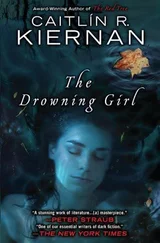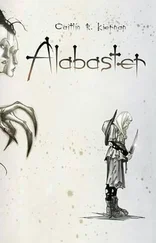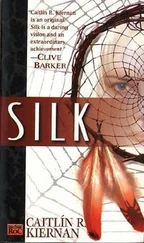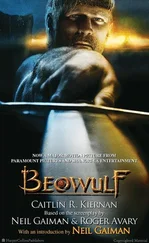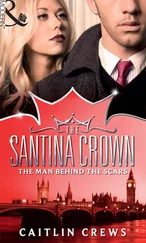Caitlin R. Kiernan - The Red Tree
Здесь есть возможность читать онлайн «Caitlin R. Kiernan - The Red Tree» весь текст электронной книги совершенно бесплатно (целиком полную версию без сокращений). В некоторых случаях можно слушать аудио, скачать через торрент в формате fb2 и присутствует краткое содержание. Жанр: Ужасы и Мистика, на английском языке. Описание произведения, (предисловие) а так же отзывы посетителей доступны на портале библиотеки ЛибКат.
- Название:The Red Tree
- Автор:
- Жанр:
- Год:неизвестен
- ISBN:нет данных
- Рейтинг книги:3 / 5. Голосов: 1
-
Избранное:Добавить в избранное
- Отзывы:
-
Ваша оценка:
- 60
- 1
- 2
- 3
- 4
- 5
The Red Tree: краткое содержание, описание и аннотация
Предлагаем к чтению аннотацию, описание, краткое содержание или предисловие (зависит от того, что написал сам автор книги «The Red Tree»). Если вы не нашли необходимую информацию о книге — напишите в комментариях, мы постараемся отыскать её.
The Red Tree — читать онлайн бесплатно полную книгу (весь текст) целиком
Ниже представлен текст книги, разбитый по страницам. Система сохранения места последней прочитанной страницы, позволяет с удобством читать онлайн бесплатно книгу «The Red Tree», без необходимости каждый раз заново искать на чём Вы остановились. Поставьте закладку, и сможете в любой момент перейти на страницу, на которой закончили чтение.
Интервал:
Закладка:
I sat on the living room floor, and held the wax paper, and cried until my sinuses ached and there was nothing in me left to cry. I was terrified that Constance would come downstairs, and I’d have to try to explain, but she didn’t. And then I put Amanda’s keepsake back between pages 184 and 185, closed the book, and returned it to the bottom of the cardboard box.
In Chapter Five of Harvey’s manuscript, he relates an apparently well-documented incident from 1957 that bears an unnerving similarity to what happened to Constance and me on Sunday afternoon. An unnerving similarity, or a remarkable similarity, or both. This is new territory for me, and so I’m not entirely certain what adjectives are most appropriate. In all honesty, I’d pretty much resolved to stop reading the manuscript. I’d decided, before Sunday, to let Constance read it and satisfy whatever morbid curiosity motivates her, then deliver it to the sociologist in Kingston. The thing has begun to make me nervous, and before Sunday, I would have said it makes me nervous in no way that I can lay my finger on. Now, I can lay my finger on page 242, and point to the precise source of my unease — or one of the sources, as I am beginning to see that it all fits together somehow, even if I cannot yet fully articulate the extent of the nature of this interconnectedness.
On page 242, Harvey writes:
The odd case of Olivia Burgess bears discussing in detail, in part because it was reported in numerous newspapers, not only in Rhode Island and New England, but all across the country. Here we do not have to rely upon the frail pages of antique diaries or local folklore or turn to urban legends where the only sources that can be cited are the inevitable FOAFs. In my files, I have forty-seven separate newspaper and magazine accounts of the Burgess incident, all of them printed between October 17, 1957, and May 2, 1974, including a number of interviews with Ms. Burgess. Though a few of the periodicals in question may rightfully be considered suspect (the December 1963 issue of Fate, for example, and a particularly sensationalized piece in the September ’71 issue of Argosy), most of the reporting is straightforward and often outwardly skeptical of Ms. Burgess’ claims (many of the later accounts appear as “seasonal” Halloween-related pieces, neither taking the story seriously nor bothering to get the facts straight).
On the morning of Thursday, October 10, Olivia Burgess, a widowed 45-year-old native of Hartford, Connecticut, was visiting the Wight Farm as part of research for a book on the history of agricultural practices in pre-Revolutionary War New England. Having been told that there were remains of an old cider press located within easy walking distance of the house, at the base of a large tree somewhere near Ramswool Pond, Ms. Burgess set out on foot, alone, to see if she could confirm or deny the report. By all accounts, in the fall of 1957, the land between the farmhouse and the flooded quarry was still being kept clear, and the walk would surely have seemed a simple enough detour. However, the story she would eventually tell a friend back in Hartford, who urged her to repeat it to a local reporter, was anything but simple.
According to Ms. Burgess, she found the large stone situated at the base of the old red oak, just as it had been described to her by the landowner’s wife. She reported photographing the stone from several angles using a Brownie Bull’s-Eye camera. It was only when she’d finished and had headed back towards the house that her visit to the Wight place took a macabre turn. Olivia Burgess claimed to have become immediately disoriented, though she was certain from the position of the sun and the fact that the tree was visible behind her, that she had to be heading in the right direction. Also, she noted, she soon lost sight of the farmhouse, though it should have lain directly ahead of her, to her south.
“The longer I walked, the farther away from me the house appeared to get. It literally grew smaller as I approached, as though I were experiencing an inversion of parallax or stereopsis. The effect was not only frightening, but I soon became nauseated, almost to the point of vomiting.” Finally, the house vanished from sight completely and Burgess grew “very afraid, because I could still see the tree quite well whenever I looked back towards the pond.” After almost half an hour of trying to reach the house, she retraced her steps to the tree and tried once again to reach the farmhouse, with identical results.
“It was getting late,” she told The Hartford Courant, “and twilight was coming on. I became terrified that I would be unable to get back to the house before nightfall, even though it lay less than a hundred yards away.”
After a third failed attempt to walk back to the house, Ms. Burgess had the presence of mind to try a different tack. Though it was growing dark, she crossed the stone wall west of the tree and walked in that direction until she managed to reach a farm on Barbs Hill Road. She then caught a ride into Moosup Valley, and did not return for her car until the next morning, and then only with the company of a male acquaintance from Foster, as well as an off-duty fireman, the landowner, and another local (unnamed) farmer. She is quoted in the original Hartford Courant article as having said, “I know perfectly well that all four of them thought I was certifiable, and I told them a lot less than I’m telling you. But I wouldn’t go back out to that tree for a million dollars.”
When the film in her Brownie was processed by a photo lab a few days later, all the prints were returned black, devoid of any image whatsoever, as though the film had never been exposed.
There’s quite a bit more of this. In fact, Harvey devotes the majority of Chapter Five to the episode, to various interviews with Olivia Burgess ( née Adams) and to numerous secondhand sources. He claims (and it does appear, from his account) that Burgess stuck to her story, as first reported, until her death in 1987 at age seventy-five. Some of the later versions of the tale, notably those appearing in Fate and Argosy magazines, took considerable liberties and embellished the story, as though it weren’t bizarre enough to start with. The Argosy article states that Burgess found fresh bloodstains on the stone and around the base of the old oak, and the Fate article not only claims that she was pursued by a “large black wolflike animal” during her ordeal, but tries to link the episode to both UFO s and the nuclear accident in Windscale, Cumbria, which happened to occur that same day (and was considered the world’s worst reactor mishap until Three Mile Island).
While certainly not identical to the apparent distortions of space and time that Constance and I experienced on our “lost picnic,” the parallels are unequivocal. I have packed the unfinished manuscript back into its box and left it at the foot of the attic stairs for her to read. I think I’ve had enough. Enough of those pages and enough of this place, enough of that wicked tree that I have to see every time I forget not to look out the kitchen window. Enough, period. If someone had told me Olivia Burgess’ story a week ago, I’d have called them a crank or a liar. Now, I’m wondering if it’s possible to sue that bastard Blanchard for neglecting to mention that he was renting me a house built on Hell’s doorstep?
CHAPTER FIVE
I thought perhaps I’d made the last entry to this journal, if you can even call this a proper journal. Dr. Harvey’s typewriter has sat here on the kitchen table, neglected, untouched (at least by my hands), for the past four days. So, I was hoping I’d kicked the habit. No such luck. Clack, clack, clack. And I’m not entirely sure what has brought me back to these clangorous keys, whether it is today’s events or merely force of habit. If I claim the former, I can feel as though I am compelled, and so what I am saying has some importance. If I plead the latter, well, then this is really no different than the nicotine, and perhaps nothing happened today that was any more remarkable than the nothing that happened yesterday, and the nothing from the day before that. But, because I need a fix — the motion of my fingers, the syllables spilling from my mind, the “sound” of my own goddamn droning voice talking to myself — I’m willing to inflate the significance of the afternoon to give me an excuse to write.
Читать дальшеИнтервал:
Закладка:
Похожие книги на «The Red Tree»
Представляем Вашему вниманию похожие книги на «The Red Tree» списком для выбора. Мы отобрали схожую по названию и смыслу литературу в надежде предоставить читателям больше вариантов отыскать новые, интересные, ещё непрочитанные произведения.
Обсуждение, отзывы о книге «The Red Tree» и просто собственные мнения читателей. Оставьте ваши комментарии, напишите, что Вы думаете о произведении, его смысле или главных героях. Укажите что конкретно понравилось, а что нет, и почему Вы так считаете.

